2014 Vuelta a España route unveiled
Eight mountain finishes and short time trials make it a race for climbers
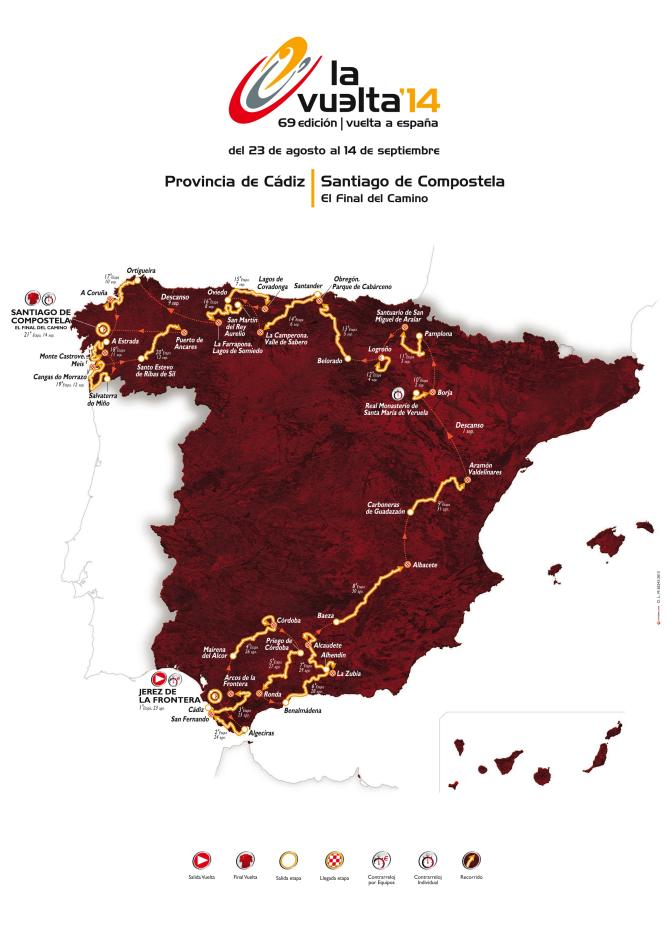
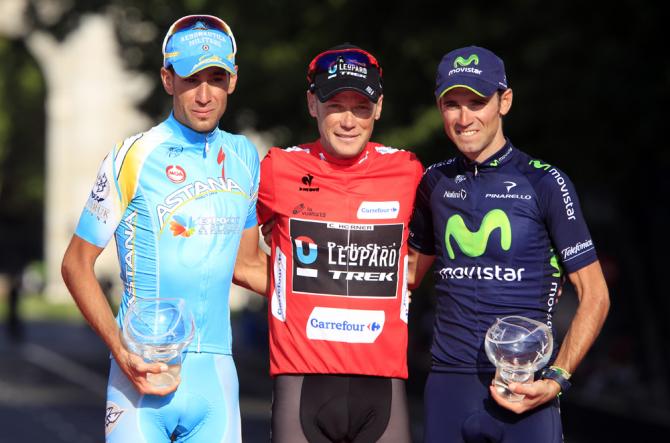
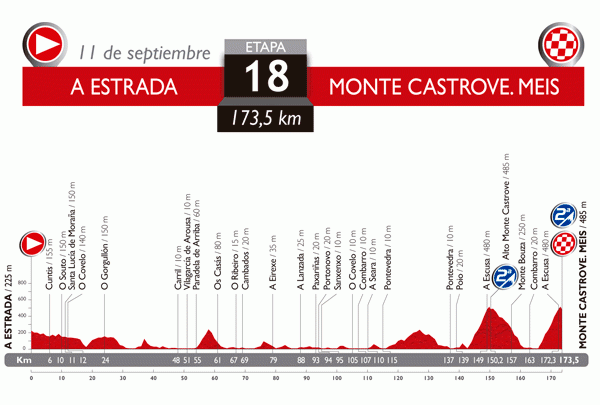
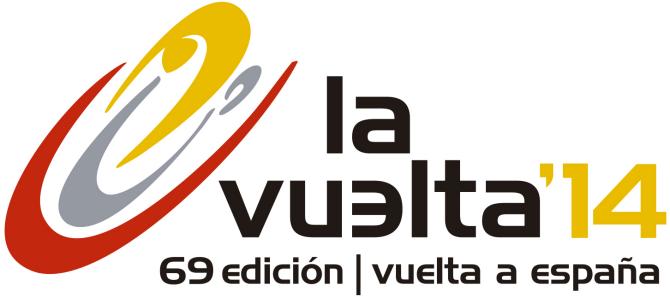
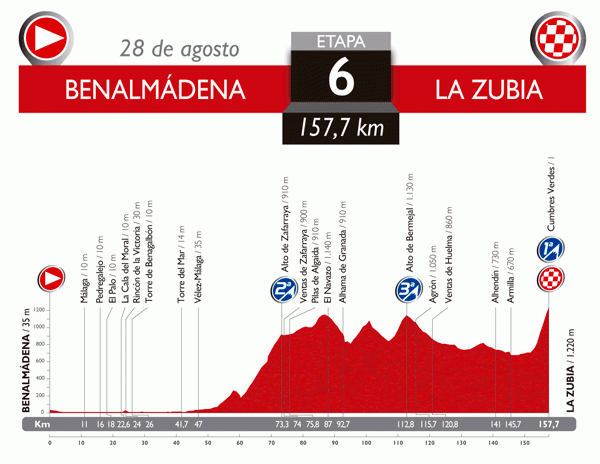
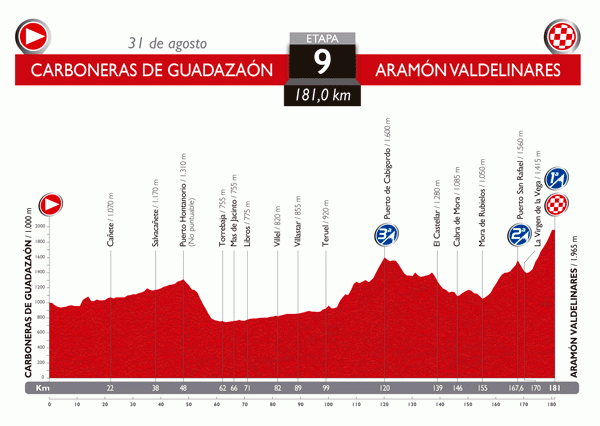
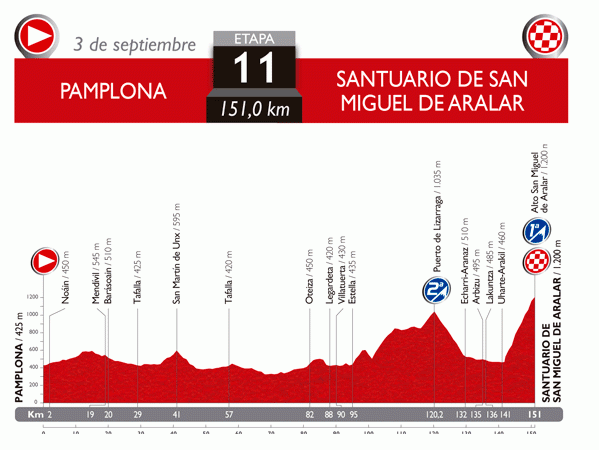
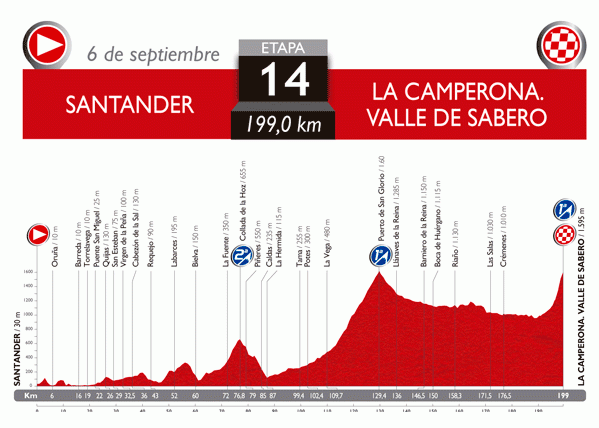
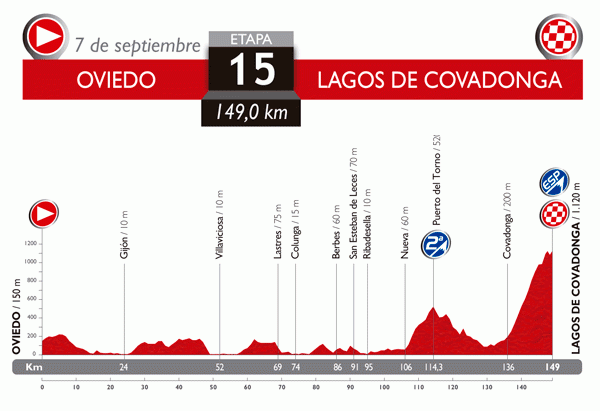
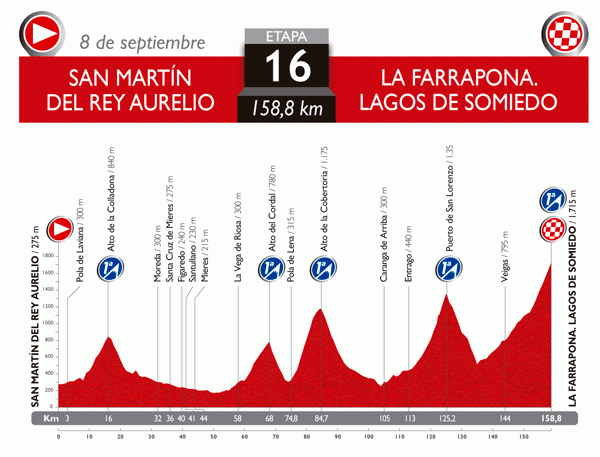
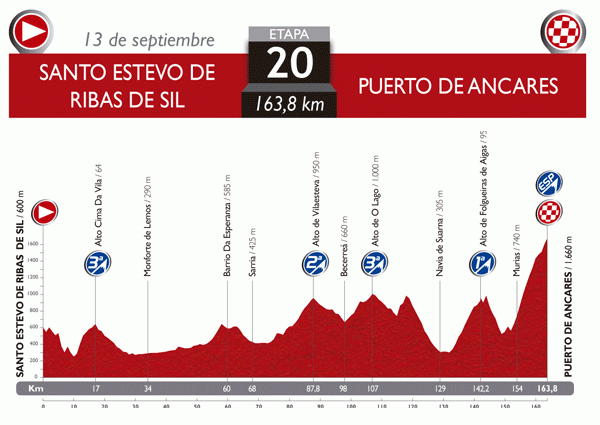
The Vuelta a España 2014 route has been unveiled today confirming the leaked version of the parcours that appeared mid-week in two Spanish newspapers: the 2014 route eight summit finishes, a little more individual time trialing than in 2013 and a very hard final ten days in the north of Spain.
As 1988 Tour winner and Vuelta commentator Pedro Delgado put it, "from stage ten onwards there are no truces whatsoever."
The peloton will face one tough ascent after another, with the stage 15 summit finish at Lagos de Covadonga, the stage 16 finish to La Farrapona and the stage 20 finish to Ancares the hardest of the eight uphill finishes.
The Vuelta starts in the city of Jerez de la Frontera in southwest Spain on August 23rd and finishes in the northwestern Galician capital Santiago de Compostela on September 14th with a flat 10km time trial.
It will be the first finish outside Madrid since 1993, when the Vuelta also concluded with a time trial in Santiago de Compostela. But whilst in 1993 that last stage - with Alex Zulle and Tony Rominger battling for victory - was decisive (and ended with victory for Rominger) - this time round, it is the mountains that will be crucial in deciding the winner of the red jersey.
“It’s true that there are fewer mountain top finishes than in 2013 -when we had 12, but it’s still pretty tough” reflected Vuelta race director Javier Guillen.
“Just in the first week, the stage into Cordoba, for example, is preceded by a lot of climbs, and it will be difficult, too, for the stage into Arcos de la Frontera to end in a bunch sprint.”
Get The Leadout Newsletter
The latest race content, interviews, features, reviews and expert buying guides, direct to your inbox!
“Twelve summit finishes like in 2013 was the maximum possible a Vuelta route could envisage. We’ve pulled back a little from that extreme in 2014.”
Route analysis
Following a 12.6km opening team time trial in Jerez de la Frontera - less than half the length of the equivalent stage in 2013, and potentially tricky stages along the coast and in the rugged sierras of western Andalusia, the first big challenge of the race route comes in the five kilometre ascent to Cumbres Verdes on stage six. Short, but with a steep 400 metre ramp half-way through, the climb - and the blazing heat which is always a factor in Andalusia at that time of year - could see a first weeding out of the weaker elements amongst the favourites. The return of one of the Vuelta’s best known summit finishes at Valdelinares on stage nine will present another early chance to attack and gain time and perhaps the race leadership.
Following a short transfer north a 34.5 kilometre hilly time trial near Zaragoza on stage 10 opens up an almost non-stop series of major challenges. The triptych of mountainous stages in Asturias Picos de Europa region, then the stages to La Camperona, Lagos de Covadonga and Farrapona, will probably wipe out any advantage gained by time trial specialists at Zaragoza and will see the best climbers and overall contenders fight for the overall lead.
However the five final stages in Galicia are more than enough to see a turnaround in the general classification should a race leader prove vulnerable. After a rolling stage to A Coruña, a summit finish at Monte Castrove - a grindingly steep ascent which featured in the 2012 Vuelta time trial, the ascent to Ancares on stage 20 will provide a last mountain showdown just 24 hours before the finish in Santiago de Compostela.
Time bonuses are back but no Pyrenees
Whilst time bonuses will make a return to the race, big elements missing are Catalonia, the Pyrenees, and the usual mountainous stage into or through Andorra or France.
“We would like to have gone there and we will be back. We had a great stage in France last year [to Peyragudes and won by Frenchman Alexandre Geniez] but it’ll have to wait,” Guillen said.
“In terms of logistics, it just wasn’t practical. If you are in Andalusia [in southern Spain] early on for a week and then in Galicia [in north-west Spain] for the last five stages, without finishing in Madrid, you either have to have a big transfer - which we wanted to avoid - or miss out on some areas of the country.”
Questions have also been raised as to how Jerez de la Frontera, which has severe budget problems and a town hall debt of 744 million euros, second only to Madrid in Spain, could afford to host the race.
“They recognised the Vuelta is a sound investment,” Javier Gullen said. “In terms of international image, it’s what any city wants.”
Missing from the 2014 Vuelta which the riders and everyone on the race will be happy about, are the long transfers of the previous two editions. Guillen pointed out that there will be 2,000 kilometres less of transfers than in 2013.
Alasdair Fotheringham has been reporting on cycling since 1991. He has covered every Tour de France since 1992 bar one, as well as numerous other bike races of all shapes and sizes, ranging from the Olympic Games in 2008 to the now sadly defunct Subida a Urkiola hill climb in Spain. As well as working for Cyclingnews, he has also written for The Independent, The Guardian, ProCycling, The Express and Reuters.
